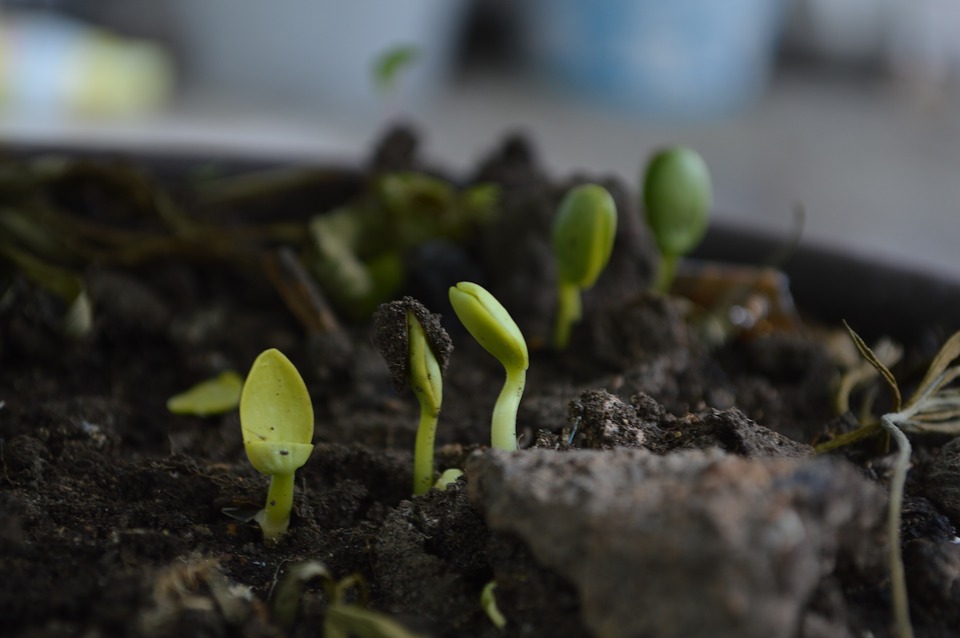What Microbial Lives Are Beneficial for Plants
- September 23, 2022
- Arktivist
There is a thriving ecosystem of microorganisms beneath the surface of the earth that provides nutrients to flora and fauna. Here’s a breakdown: Plants derive their food from the soil they grow in. The “food” is absorbed in the form of nutrients. These nutrients are materials that are mechanically and chemically transformed by the microbes in the soil.

Microbial lives are crucial to soil and plant health because these organisms contribute greatly to agriculture and farming. Strategic increase or control of these species can potentially improve how we grow the plants that provide us food.
Soil microbes break down the organic matter from dead plants and animals and convert it into nutrients, improving soil structure, increasing nutrients in the soil, and helping plants thrive.
In this blog, we will explore some of the microbial lives and how they benefit plants.
What Are Microbes?
Microbes are tiny living organisms (found all around us) that are too small to be seen by the naked eye. They inhabit soil, water, and air and are even found in our bodies, which gives them their name, microorganisms.
Microbes are single-celled living organisms, including microscopic organisms of all three groups of life, i.e., bacteria, archaea, and eukaryotes. Fungi is another common group of microbes found in single and multicellular forms and can be seen with and without the naked eye.
Soil is enriched by naturally occurring microbial lives from these three domains. Together, these microbes have shaped the soil structure and generated habitable conditions for plants since the beginning of time.
Microbial lives are most abundantly found in most terrestrial environments, water, ocean floor, and garden soil. Their presence is essential because microbial lives greatly improve soil fertility and sustain plant growth.
What Do They Do For Plants?
Microbial lives work together to form symbiotic relationships with plants. Plants direct as much as 30% of their energy to the root zone to produce food for microbes. Microbes, in return, feed the plant by converting and holding nutrients in the soil, making it fertile and healthy.

Other than nutrient cycling, microbes are involved in the production of hormones and chemicals essential for the stimulation of plant growth.
Soil microbes also play a preventive role in protecting plants from getting infected by pathogens. They induce disease resistance and physically coat the surface of roots to shield plants from infectious diseases. Examples of these plants include Acacia, Agapanthus, Tomato, Pittosporum etc.
Environmentalists have started to deem synthetic fertilizers to be harmful to environmental health, leading to the increased usage of beneficial microorganisms for developing agricultural systems among gardeners and farmers.
It may also include the use of organic fertilizers available in the market like Arktivate, which are made up of beneficial microbes essential for your plant’s health.
Five Types Of Microbial Lives Beneficial For Plants
Microbial lives have been known to farmers and gardeners as essential to plants’ health. Recent research reveals that nutrients are not recycled without a healthy microbial community, considerably reducing the plants’ potential to thrive.
Here is a list of 5 beneficial microbes:
1. Bacteria
Soil bacteria represent some of the smallest single-celled organisms that cannot be seen with the naked eye. Scientists have discovered over 10 million species of bacteria occurring in various morphologies, i.e., different sizes and shapes, like a spiral, rod, sphere, etc.
Beneficial soil microbes, i.e., bacterial cell biomass covering the surface of the earth, are approximately greater than all plants and animals biomass combined.
Soil bacteria serve as inoculants to stimulate plant growth by increasing nutrient uptake. Bacteria are found in a variety of environmental conditions and are known to form symbiotic or parasitic relationships with plants.

Bacteria are beneficial as they improve soil nutrients in the root zone and shield the plant against infectious diseases.
2. Actinomycetes
Actinomycetes are single-celled bacteria abundantly found in the soil in thread-like filaments. Actinomycetes are responsible for the characteristic “earthy” smell of fresh soil.
The major role actinomycetes play in plant growth is the cycling of organic matter that provides nutrients to plants. They inhibit the growth of various plant pathogens in the root area. Actinomycetes also decompose dead plants and increase the nitrogen levels in the soil.
Actinomycetes act as biofertilizers and help maintain the soil equilibrium, aiding the development of a healthy ecosystem for plants.
3. Fungi
Fungi are found in the root zone and help make nutrients like Nitrogen, phosphate, and water available to plants. Fungi act as a decomposer; they improve soil quality by decomposing complex compounds to increase organic matter in the soil. This stimulates nutrient cycling and helps soil retain nutrients and moisture.
As a beneficial microbial life, fungi help plants grow. Because fungi are made up of fine threads, they can spread over long distances, extract water and nutrients from far and bring it back to the plant roots.
Fungi also help improve the plant’s resistance to pathogens and stress.
4. Protozoa
Protozoa are single-celled organisms essential to the soil ecosystem. It is known to consume bacteria. This process is essential because the nutrients eaten by bacteria are released when protozoa eat the bacteria.
Protozoa play an important role in increasing soil fertility by feeding on bacteria that extract nutrients and regulating their population. It helps boost nutrient cycling, thus causing an increase in the uptake of Nitrogen by plants.
Protozoa are also beneficial for other soil microbes and help suppress diseases by competing with or feeding on pathogens.
5. Nematodes
Nematodes are microscopic worms living inside or around the plant. Nematodes are beneficial microbes because they feed on organisms that are pests to plants. Gardeners also use nematodes to control the population of parasitic insects that are harmful to plants.
Nematodes improve soil quality by regulating the population of other soil microorganisms, making nutrients available to plants, and consuming other disease-causing pests.
Some nematodes are predators that feed on plant roots, while others are beneficial in mineralizing plant nutrients.
Summing It Up
Plants’ soil needs to be rich in nutrients, fertility, and equilibrium. All of these characteristics are upheld by the microbial lives found in soil. Farmers and gardeners have long known that soil microbes are essential for plant productivity and wellness.
Without a thriving microbial community, plants cannot function well. So it is important to realize the benefits of microbial lives like fungi, bacteria, protozoa, nematodes, and actinomycetes along with other naturally occurring organisms and how they contribute to the health and wellness of your plants.
- Categories: Plants nutrients
- Tags: Microbes, Plant Care